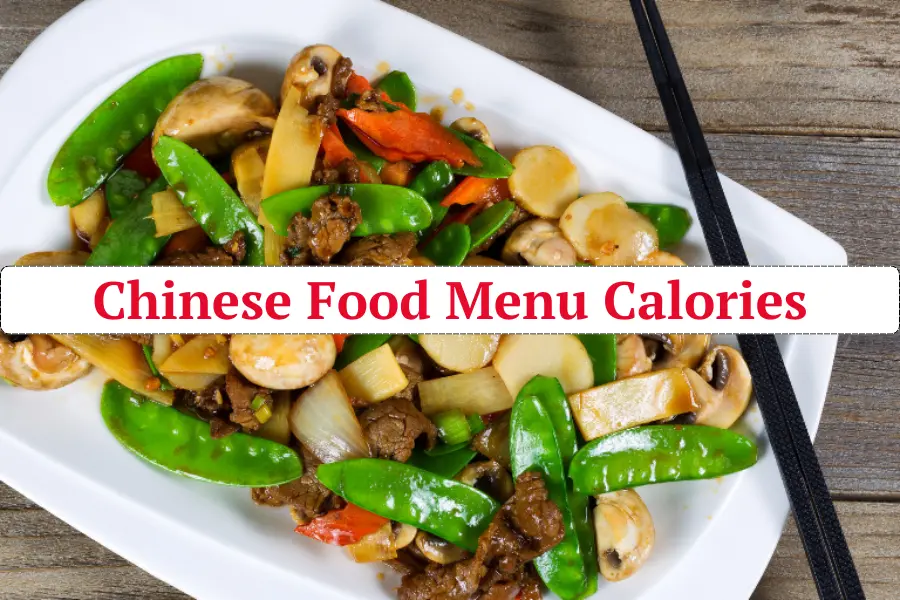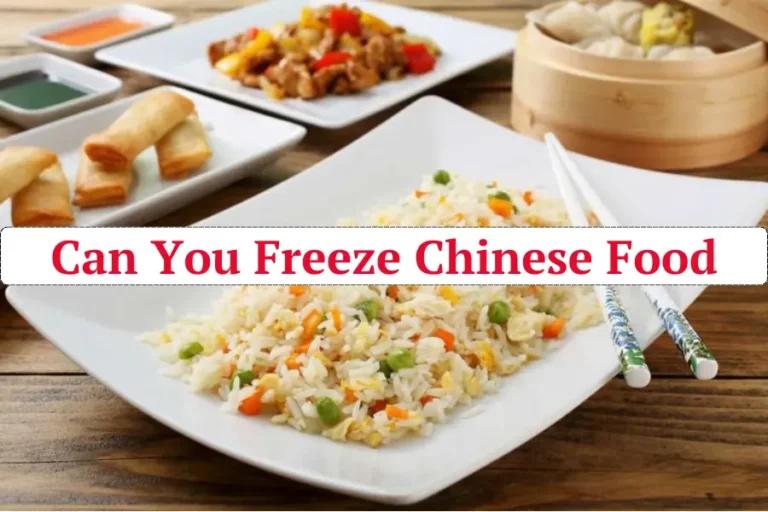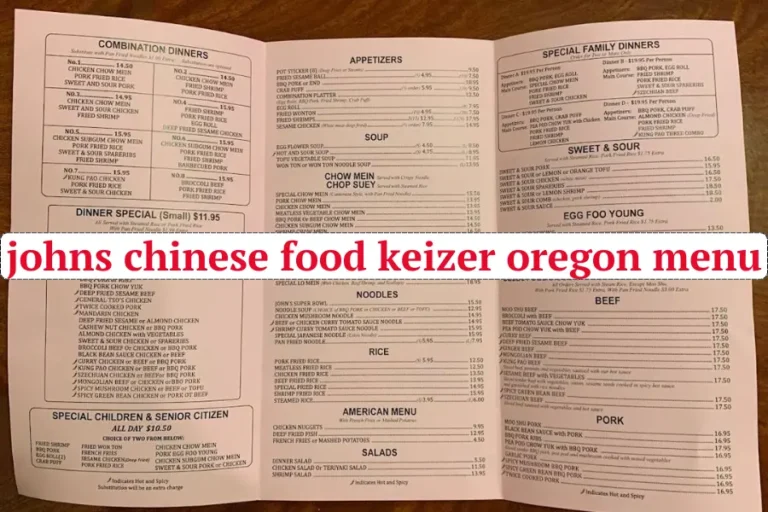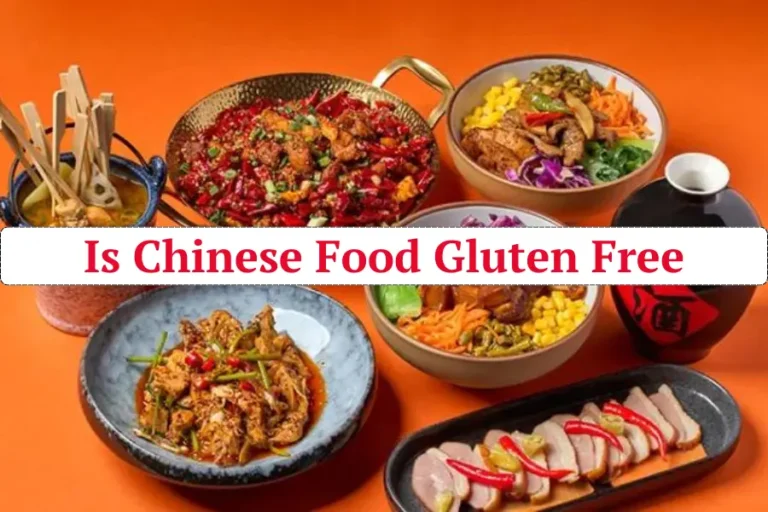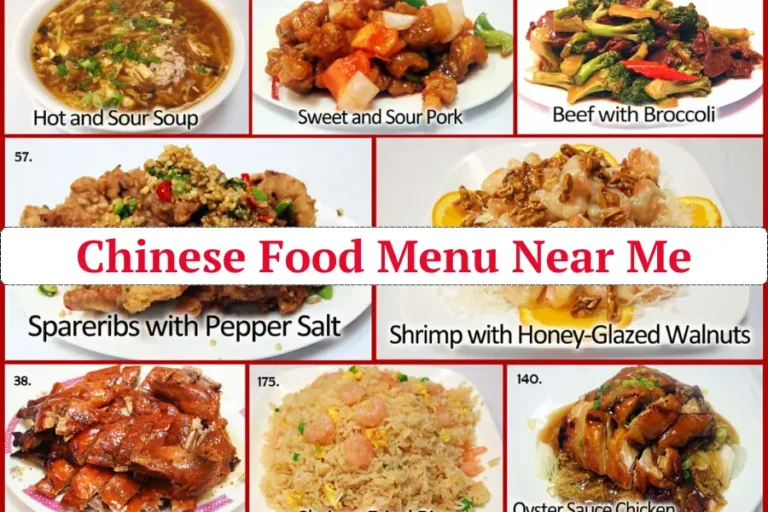How Do You Make Garlic Sauce for Chinese Food at Home
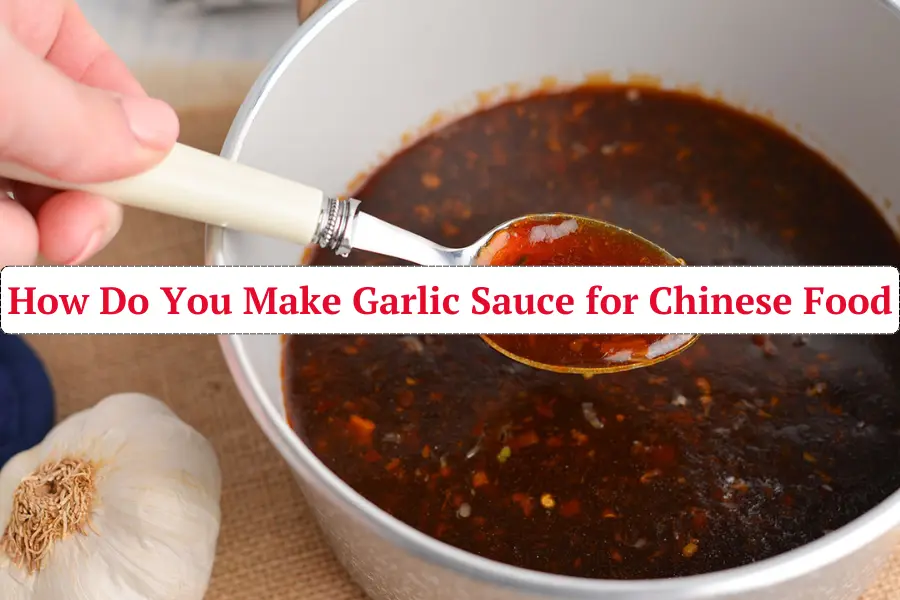
If you’ve ever found yourself craving the rich, savory taste of garlic sauce in your favorite Chinese dishes but aren’t sure how do you make garlic sauce for Chinese food at home. Many people need help to replicate that authentic, restaurant-quality flavor, but the good news is that it’s easier than you think. In this article, we’ll not only walk you through the steps to create a delicious garlic sauce but also share the secrets to mastering it in your kitchen. By the end, you’ll have all the tools and knowledge you need to whip up a garlic sauce that rivals your favorite takeout. Ready to get started? Let’s dive in!
| Step | Action | Details |
|---|---|---|
| 1 | Prepare Garlic | Finely mince fresh garlic cloves for a strong, aromatic flavor. |
| 2 | Mix Sauce Base | Combine soy sauce, rice vinegar, and sugar until sugar dissolves. |
| 3 | Create Cornstarch Slurry | Dissolve cornstarch in water to thicken the sauce. |
| 4 | Sauté Garlic | Cook minced garlic in sesame oil until fragrant and golden. |
| 5 | Combine and Simmer | Add the soy sauce mixture to the garlic and bring to a simmer. |
| 6 | Thicken the Sauce | Stir in the cornstarch slurry, simmer until thickened. |
| 7 | Adjust Flavor | Taste and adjust with more sugar, vinegar, or water as needed. |
| 8 | Serve or Store | Serve immediately or store in the fridge for later use. |
Brief Overview of Garlic Sauce in Chinese Cuisine
Garlic sauce is a staple in Chinese cuisine, known for its bold, punchy flavor that adds depth to a wide variety of dishes. Made primarily with fresh garlic, soy sauce, vinegar, and a few other simple ingredients, it’s both versatile and essential in Chinese cooking.
Importance of Homemade Garlic Sauce
There’s something special about making garlic sauce at home—it’s fresher, customizable, and free of preservatives. When you know how do you make garlic sauce for Chinese food in your kitchen, you have the power to tweak the ingredients to suit your taste. Whether you like it spicier, sweeter, or with a stronger garlic kick, homemade sauce allows you to get it just right. Plus, it’s a healthier option since you control what goes into it, ensuring a pure and authentic flavor that enhances any dish.
What is Garlic Sauce in Chinese Food?
Garlic sauce is a savory, flavorful condiment in Chinese cuisine made from fresh garlic, soy sauce, vinegar, and a few other key ingredients. Its thick, slightly sticky texture clings beautifully to meats and vegetables, making it ideal for stir-fries, dipping, or drizzling over dishes. The combination of salty, tangy, and umami flavors creates a robust taste that enhances the natural flavors of whatever it accompanies.
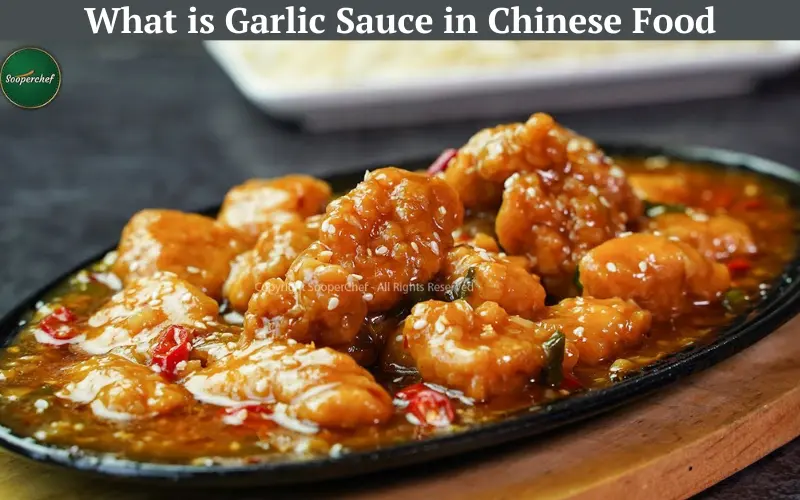
Common Variations and Uses in Different Dishes
Garlic sauce can vary slightly depending on the region or the specific dish it’s used in. For example, in Sichuan cuisine, you might find garlic sauce with an added kick of chili, giving it a spicy edge. In Cantonese dishes, the sauce might be sweeter and lighter. Despite these variations, the core ingredients remain consistent, making it a versatile addition to many Chinese dishes. Whether you’re using it in a classic chicken stir-fry, as a dip for spring rolls, or to spice up some steamed veggies, garlic sauce is a must-have in your Chinese cooking repertoire.
By understanding how do you make garlic sauce for Chinese food and its significance in Chinese cuisine, you’re well on your way to mastering this essential component of many beloved dishes.
Essential Ingredients for Making Garlic Sauce
Creating an authentic garlic sauce for Chinese food starts with the right ingredients. Here’s a breakdown of the essential components that make this sauce so flavorful and versatile.
List of Main Ingredients
- Fresh Garlic Cloves
- Soy Sauce
- Rice Vinegar
- Sugar
- Cornstarch
- Water
- Sesame Oil
Explanation of Each Ingredient’s Role
- Fresh Garlic Cloves: The star of the sauce, fresh garlic provides the bold, aromatic flavor that defines this sauce. Minced garlic releases its oils and blends seamlessly into the sauce, ensuring a rich garlic taste in every bite.
- Soy Sauce: This ingredient adds the umami depth and salty balance that complements the pungent garlic. It’s the base of the sauce, giving it a savory backbone.
- Rice Vinegar: Adds a slight tanginess, balancing the rich soy sauce and garlic with a touch of acidity. This ingredient ensures the sauce isn’t too heavy and keeps the flavors lively.
- Sugar: A small amount of sugar rounds out the flavors, cutting through the acidity of the vinegar and adding a hint of sweetness. It also helps to caramelize the sauce slightly as it cooks.
- Cornstarch: Cornstarch is used to thicken the sauce, giving it the desired consistency. It ensures the sauce clings well to meats and vegetables without being too runny.
- Water: Water adjusts the consistency of the sauce, preventing it from becoming too thick or too salty. It also helps to distribute the flavors evenly.
- Sesame Oil: Adds a nutty aroma and enhances the overall flavor of the sauce. It’s typically added at the end to preserve its delicate flavor and scent.
Optional Ingredients for Customization
- Red Pepper Flakes: For those who enjoy a bit of heat, adding red pepper flakes will give the sauce a spicy kick without overpowering the garlic.
- Oyster Sauce: Adding a spoonful of oyster sauce can introduce a sweet and briny depth, making the sauce richer and more complex.
- Ginger: Freshly grated ginger can be added for a slight spicy note and extra warmth, complementing the garlic beautifully.
Do You Know!!
The first recorded use of garlic in Chinese cuisine dates back to the Han Dynasty (206 BC – 220 AD), where it was primarily used for its medicinal properties before becoming a culinary staple.
How Do You Make Garlic Sauce for Chinese Food: Step-by-Step Guide
Making garlic sauce at home is simpler than you might think, and it allows you to customize the flavors to your liking. Here’s a straightforward guide to help you create a delicious and authentic garlic sauce.
Detailed Instructions for Making Garlic Sauce at Home
- Prepare the Garlic: Start by peeling and finely mincing 4-5 fresh garlic cloves. The finer the garlic, the more evenly it will incorporate into the sauce.
- Create the Base: In a small bowl, combine two tablespoons of soy sauce, one tablespoon of rice vinegar, and one teaspoon of sugar. Stir until the sugar dissolves completely, forming a balanced, flavorful base.
- Mix the Thickener: In another small bowl, dissolve one teaspoon of cornstarch in 2 tablespoons of water. This cornstarch slurry will thicken the sauce to the perfect consistency.
- Cook the Garlic: Heat one tablespoon of sesame oil in a small pan over medium heat. Once hot, add the minced garlic and sauté for about 30 seconds or until fragrant. Be careful not to burn the garlic, as it can turn bitter.
- Combine Ingredients: Pour the soy sauce mixture into the pan with the garlic. Stir well and bring the mixture to a gentle simmer.
- Thicken the Sauce: Slowly add the cornstarch slurry to the pan while stirring constantly. Continue to stir as the sauce thickens, ensuring a smooth and even texture.
- Adjust the Flavor: Taste the sauce and adjust the seasoning as needed. If you prefer it to be sweeter, add a pinch of more sugar. If it’s too salty, add a little water to balance it out.
- Finish and Serve: Once the sauce reaches your desired thickness, remove it from the heat. At this stage, you can stir in some red pepper flakes if you like a bit of heat. Your garlic sauce is now ready to be served!
Tips for Getting the Right Consistency and Flavor
- Consistency: If your sauce is too thick, add a splash of water to thin it out. If it’s too thin, mix a little more cornstarch with water and stir it in gradually until you reach the desired thickness.
- Flavor Balance: The key to a great garlic sauce is balancing the salty, sweet, and tangy flavors. Taste as you go, and don’t be afraid to make small adjustments to suit your palate.
- Garlic Intensity: For a stronger garlic flavor, add more minced garlic. If you prefer a milder taste, reduce the amount of garlic or sauté it for a shorter time.
- Customizing: Feel free to experiment by adding other ingredients like ginger, oyster sauce, or chili for a different twist. This allows you to tailor the sauce to complement specific dishes.
Variations of Garlic Sauce for Chinese Food
Garlic sauce is a versatile staple in Chinese cuisine, and its variations across regions offer a delightful range of flavors. Understanding these different styles can help you tailor your homemade sauce to match the dish you’re preparing.
Different Regional Styles of Garlic Sauce in Chinese Cuisine
- Sichuan-Style Garlic Sauce: Known for its bold and spicy kick, Sichuan garlic sauce often includes ingredients like chili oil, Sichuan peppercorns, and a touch of sugar. This version is perfect for those who enjoy a fiery, numbing sensation alongside the rich garlic flavor. It pairs well with dishes like stir-fried chicken or eggplant.
- Cantonese-Style Garlic Sauce: In contrast to the spicy Sichuan style, Cantonese garlic sauce is typically milder and sweeter. It’s often lighter in color and uses less soy sauce, allowing the garlic to shine through. This variation is ideal for seafood dishes, such as steamed fish or shrimp, where the sauce enhances without overpowering the delicate flavors.
- Hunan-Style Garlic Sauce: Hunan cuisine also brings heat but with a smokier profile. This garlic sauce might include smoked chili paste or fermented bean curd for an added depth of flavor. It’s a robust sauce that complements hearty meats like beef or pork.
How to Modify the Basic Recipe to Suit Various Dishes
- For Spicier Dishes: To add a kick to your garlic sauce, incorporate chili oil, red pepper flakes, or even fresh chopped chilies. This modification is great for dishes like spicy garlic chicken or kung pao tofu.
- For Sweeter Dishes: If you want a sauce that complements sweeter dishes, like honey garlic shrimp, increase the amount of sugar in the recipe. You can also add a splash of hoisin sauce for an extra layer of sweetness and richness.
- For a Tangy Twist: To create a tangier garlic sauce, simply add more rice vinegar or freshly squeezed lemon juice. This variation works well with dishes that feature seafood or vegetables, balancing out the natural sweetness of these ingredients.
- For Creamier Sauces: If you prefer a creamier texture, consider adding a small amount of coconut milk or cream to the garlic sauce. This modification can be particularly appealing in fusion dishes, where a touch of creaminess can enhance the overall mouthfeel.
- For a Fermented Flavor: Incorporating fermented ingredients like black bean paste or fermented tofu can add a complex, umami-rich note to your garlic sauce. This is a perfect match for stir-fries or braised dishes that benefit from deeper flavors.
Do You Know!!
According to a recent survey, 68% of home cooks prefer using fresh garlic over garlic powder for sauces, due to its stronger flavor and health benefits.
Popular Dishes to Serve with Garlic Sauce
Garlic sauce is incredibly versatile and can elevate a wide variety of Chinese dishes. Here’s a list of popular dishes that pair perfectly with this flavorful sauce, along with a brief description of how the sauce complements each one.
List of Popular Chinese Dishes That Pair Well with Garlic Sauce
- Stir-fried chicken with Vegetables
- Beef and Broccoli
- Kung Pao Tofu
- Garlic Shrimp
- Eggplant in Garlic Sauce
- Fried Rice
- Dumplings
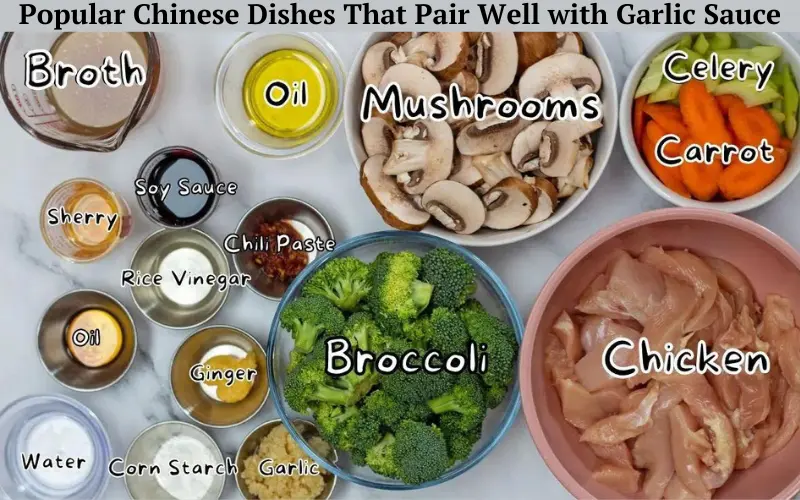
Conclusion
Mastering how do you make garlic sauce for Chinese food is a rewarding skill that brings authentic flavors to your kitchen. This versatile sauce enhances a wide variety of dishes, from stir-fries to dipping sauces, making it an essential recipe for any home cook who loves Chinese cuisine.
Don’t be afraid to experiment with the recipe to suit your taste. Whether you like your garlic sauce spicy, sweet, or tangy, the basic recipe can be easily adjusted to create a sauce that’s perfect for you. Try adding different ingredients, adjusting the seasoning, or using it in new dishes to discover your favorite version.

